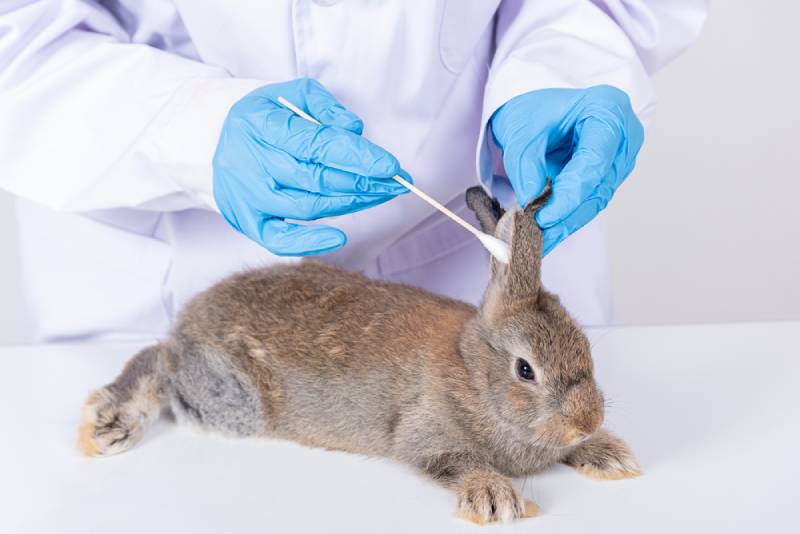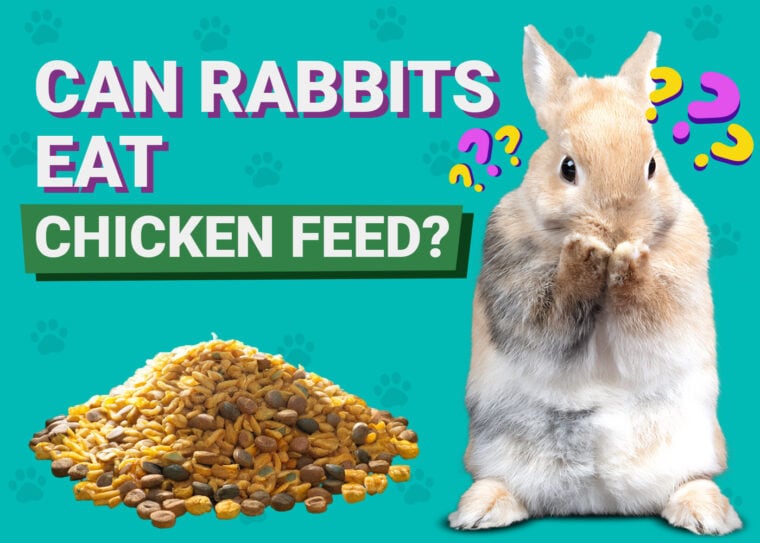
Click to Skip Ahead
As an enthusiastic pet owner, it’s natural to want to share different foods with your furry friends, or wonder if you can feed them alternatives if you run out of food. But when it comes to rabbits and their dietary needs, we must be cautious!
If you have both chickens and rabbits and are wondering if rabbits can eat chicken feed, the answer is a resounding no! While chickens and rabbits may both be adorable and fluffy, their dietary requirements differ significantly.
In this article, we’ll delve into the reasons why rabbits should steer away from chicken feed, exploring the differences between their diets and uncovering the potential risks associated with feeding chicken feed to rabbits. So, let’s dive in and ensure our bunnies receive the proper nutrition they deserve!
The Rabbit vs. Chicken Diet
Being mammals and birds, rabbits and chickens have many differences, including their diets!
Rabbits are herbivores, which means their bodies are designed to consume plant-based foods. Their digestive systems are specialized to process fibrous materials like hay, grass, and leafy greens.
On the other hand, chickens are omnivores, capable of digesting both plants and animal protein. Rabbits and chickens have major differences in their digestive systems which, in turn, leads to the differences in their diets.
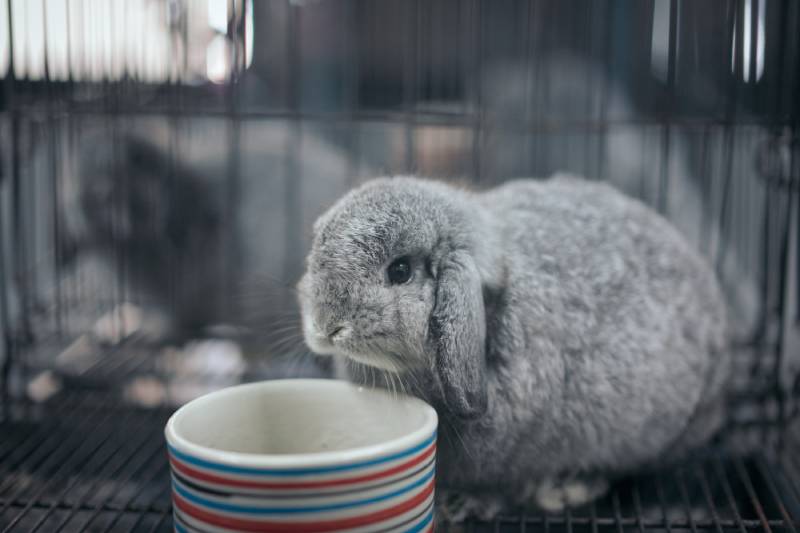
What Is Chicken Feed?
Chicken feed typically contains a mixture of grains like corn, wheat, and barley. It may also include soybean meal, sunflower seeds, fish meal, and various vitamins and minerals. These ingredients are carefully blended to meet the dietary requirements of chickens, which differ significantly from those of rabbits.
Chicken feed is tailored to provide the right balance of macronutrients (carbohydrates, proteins, and fats) and micronutrients (vitamins and minerals) for chickens. While this combination is ideal for poultry, it does not meet the specific nutritional needs of rabbits. Rabbits require a diet rich in fiber, lower in protein, and with specific vitamin and mineral ratios that chicken feed does not provide.
Is Chicken Feed Bad for Rabbits?
Chicken feed is specifically tailored to meet the nutritional requirements for chickens, not rabbits.
As herbivores, rabbits need a high-fiber diet to maintain healthy digestion and keep their teeth in good shape. Chicken feed lacks the necessary fiber content that rabbits require. Without sufficient fiber, rabbits can suffer from serious digestive issues like impactions and gastrointestinal stasis.
Chicken feed typically contains higher levels of protein than rabbits need. An excessive intake of protein can also lead to digestive disorders as well as weight gain.
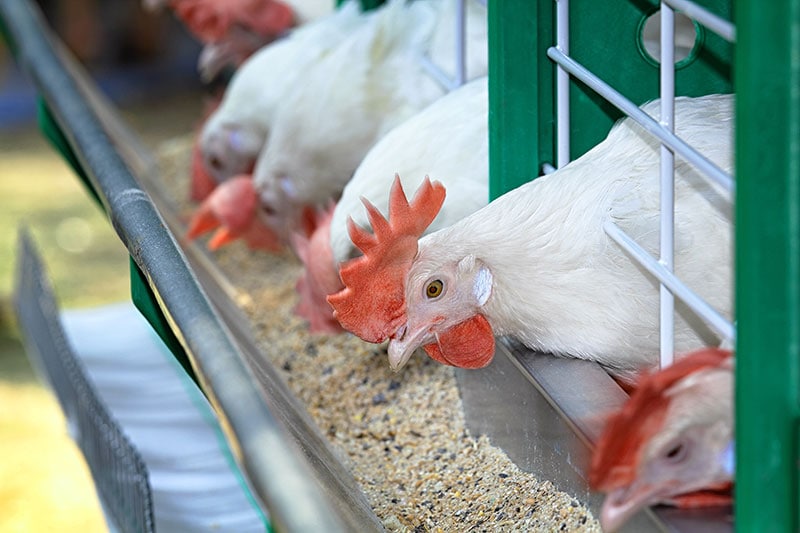
Is Chicken Feed Toxic to Rabbits?
Chicken feed is not toxic to rabbits in the sense that it may not cause immediate harm or poisoning. However, it is unsuitable for their dietary needs and can lead to various health issues if consumed regularly or in large quantities. A rabbit’s digestive system is very delicate and even consuming a small amount of chicken feed has the potential to lead to digestive issues such as diarrhea.
What Risks Does Chicken Feed Pose to Rabbits?
Feeding chicken feed to rabbits can pose several risks to their health. Here are a few potential issues that may arise:
1. Digestive Upset
Rabbits are highly sensitive to sudden dietary changes, and feeding them chicken feed can cause digestive upset. This can manifest as diarrhea, bloating, or even life-threatening conditions like gastrointestinal stasis.
2. Obesity
The high carbohydrate and protein content in chicken feed, coupled with the lack of fiber, can lead to weight gain and obesity in rabbits. Obesity is a serious health concern that can result in a range of other problems, such as joint issues and decreased overall quality of life.
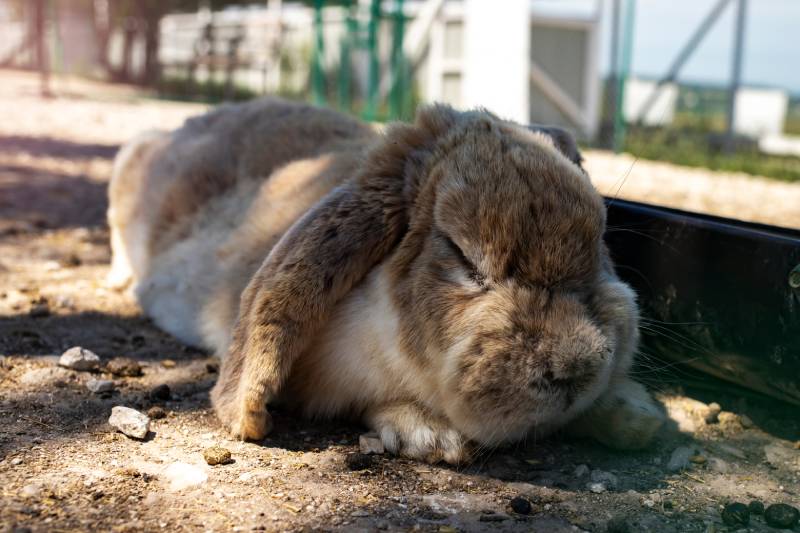
3. Stones
Chicken feed has an improper calcium-to-phosphorus ratio for rabbits and is too high in calcium. This can contribute to the formation of urinary stones in rabbits. These stones can cause blockages in the urinary tract, leading to pain, discomfort, and potential complications.
My Rabbit Ate a Lot of Chicken Feed, What Should I Do?
While eating a small amount may not be harmful to your rabbit’s health, it is still important to monitor them and keep chicken feed away from their reach.
If your rabbit has consumed chicken feed, particularly a larger amount, it’s crucial to be vigilant and watch for any signs of potential issues. Here are some signs to look out for :
If your rabbit is exhibiting any signs of being unwell, it’s essential to take prompt action. Contact your veterinarian immediately for proper recommendation and management. They can provide a proper diagnosis, recommend any necessary treatments or interventions, and guide you on how to transition your rabbit back to a suitable diet.
Remember, prevention is key, so always ensure that your rabbit has access to a well-balanced diet consisting of hay, fresh greens, and small amounts of specially formulated pellets designed for rabbits. By providing the appropriate nutrition, you can help keep your rabbit happy, healthy, and thriving.
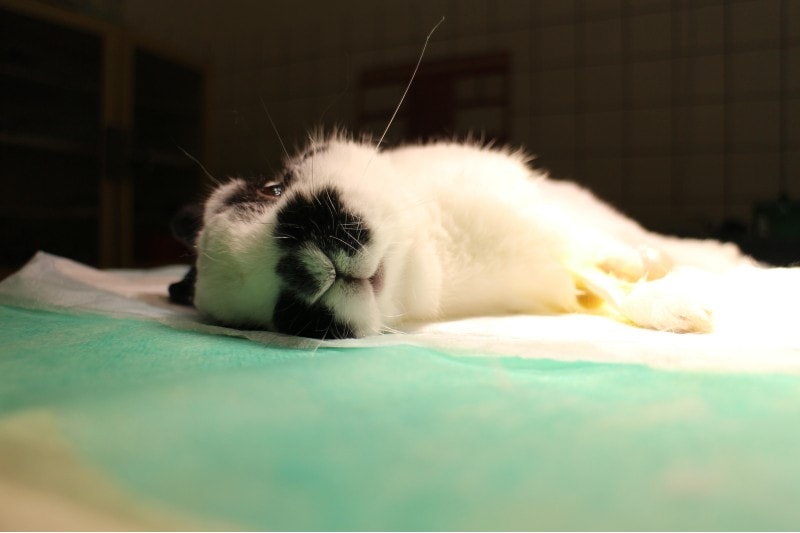
What Other Food Should Be Avoided?
Aside from chicken feed, here are other foods that are harmful for rabbits:
Remember that introducing new foods to your rabbit’s diet should be done gradually and in small quantities to allow their digestive system to adjust. If you’re uncertain about the safety of a particular food, it’s always best to consult with a veterinarian knowledgeable in rabbit care.
Conclusion
While the sight of fluffy rabbits and chickens grazing together may be adorable, their dietary requirements are distinctly different.
Rabbits require a high-fiber diet consisting of hay, grass, leafy greens, and limited amounts of pellets specifically formulated for rabbits. Chicken feed, on the other hand, is designed to meet the nutritional needs of poultry and does not provide the essential nutrients rabbits require for optimal health. Feeding chicken feed to rabbits can result in serious digestive issues, obesity, and potential stone formation.
So, let’s ensure our beloved bunnies receive the proper diet they need and stick to foods that are specifically formulated for them!
Featured Image Credit: Kaewmanee jiangsihui, Shutterstock






